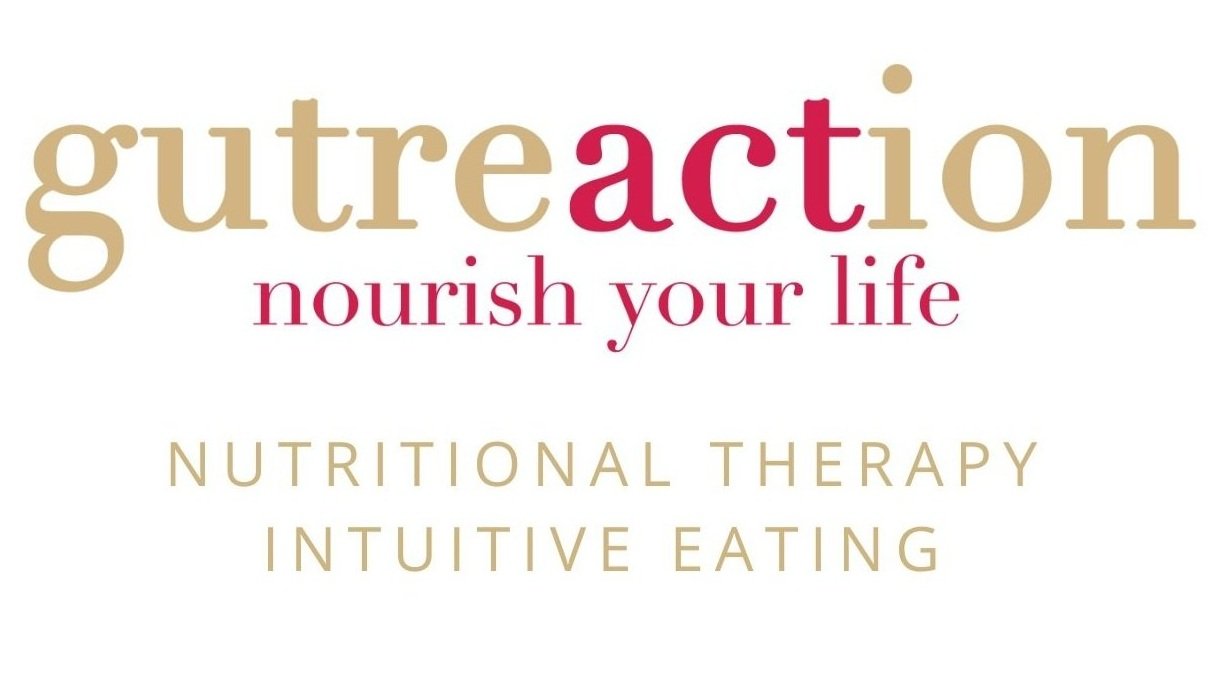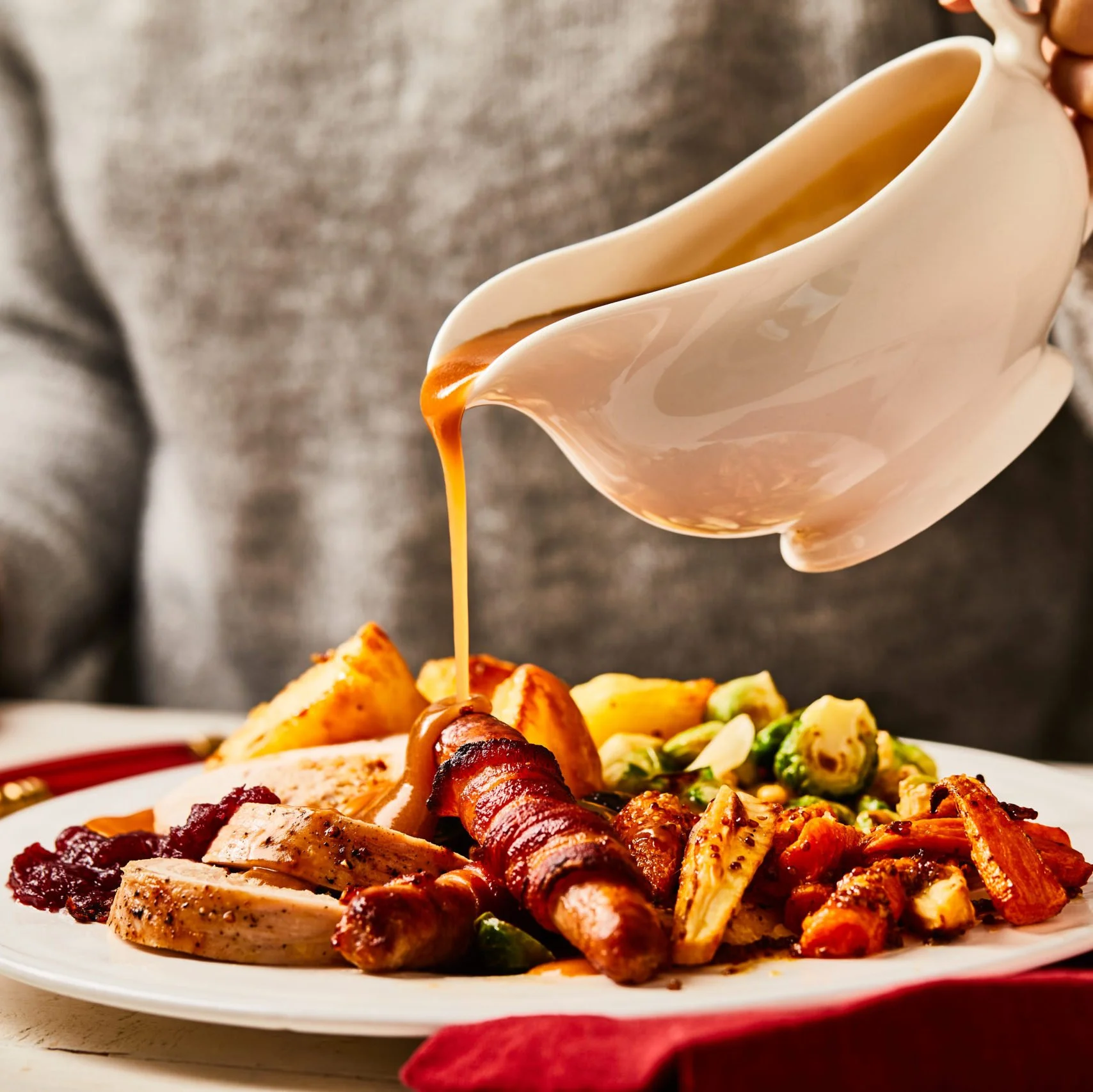Dispelling the Holiday Weight-Gain Myth: How to Navigate Post-Christmas Wellness
As the festive glow of Christmas fades and the New Year begins, many people find themselves reflecting on the indulgences of the holiday season and grappling with concerns about potential weight gain.
To add to the pressure, it's common at this time of year to be bombarded with anxiety-provoking messages promoting post-Christmas diets and resolutions centred around shedding the perceived excess pounds.
In this blog, I explore the science behind festive weight-gain concerns and explain how the body actually responds to Christmas eating. I also reveal how embracing Intuitive Eating can offer a science-based and compassionate approach to eating and self-care to help you move forward - without falling into the New year diet trap.
The Holiday Weight Gain Myth
Contrary to the common narrative, the reality is that body weight fluctuations are normal and don’t need to be catastrophised, or propel us into restrictive eating.
The human body is adept at managing fluctuations in energy intake of food, such as that which is common around the festive season for those that are fortunate to have exposure to an abundance of foods and social eating.
Whilst it is possible to put on weight if we are eating more and moving less, research indicates that the average weight gain during this period is often overestimated. A study published in the New England Journal of Medicine found that the average weight gain during the winter holiday season is around one pound, debunking the commonly touted five to ten-pound figure.
Actual weight gain is a process that happens over time - certainly not something which happens after one large meal or even over a few days of heavy eating. Short-term increases on the number on the scales typically indicate fluid shifts and the weight of food in your body.
And, even if holiday indulgences led to a temporary increase in caloric intake, this does not necessarily translate to lasting weight gain.
The Body's Natural Regulation Mechanisms
Perceived weight gain is often a transient phenomenon. How so? Well, our bodies have built in mechanisms that are constantly working to maintain homeostasis (balance), and are designed to adapt to fluctuations in energy intake and expenditure.
When we consume more energy than usual, the body increases its metabolic rate to process and utilise the excess energy. Additionally, research suggests that non-exercise activity thermogenesis (NEAT) may increase as a response to overeating, encouraging individuals to move more spontaneously.
Once the holiday season concludes, and people return their regular eating patterns, the body naturally adjusts again. Metabolic rate normalises, and any slight weight gain is typically shed without the need for drastic measures.
In essence, our bodies are resilient and capable of adapting to changes in dietary patterns without the need for drastic measures. Understanding these physiological processes can alleviate the immense pressure that is so often associated with the holiday weight gain myth, and can help promote a more balanced perspective on nutrition and health.
THE DANGERS OF NEW YEAR DIETING
As weight loss companies like Weight Watchers and apps like Noom, many gyms, and the media all start to ramp up the public’s appetite for renewal, they dangerously perpetuate a widespread fear of weight gain whilst simultaneously capitalising on this fear. Whilst in previous decades, weight loss diets were more blatant, they now often now come in the more subtle guise of ‘lasting healthy weight loss plans’ and food/lifestyle ‘resets’, meaning they can be even harder to spot.
Yet all dieting that relies on rigid food rules and restrictions can have harmful consequences on both physical and mental wellbeing.
Research indicates that weight loss dieting tends to be unsustainable and short-lived, leading to a cycle of weight fluctuations known as ‘yo-yo dieting’. This counterproductive pattern has been associated with negative health outcomes, including an increased risk of cardiovascular issues and metabolic disturbances.
There is a psychological toll too. January’s dieting messages, even when cloaked in wellness and body positivity, exude the harmful underlying message ‘your body is not good enough the way it is, and you haven’t been ‘good’ enough to manage your weight’. This focus on external appearance, as if any of us are actually in full control of our shape and size anyway, can lead to feelings of guilt, shame, and anxiety, negatively impacting mental health. Following dieting rules can also contribute to the development of disordered eating patterns, fostering an unhealthy relationship with food.
A Holistic, LIFELONG Approach to EATING
Instead of succumbing to diet culture this New Year, I urge you to consider embracing the principles of Intuitive Eating.
Intuitive Eating is a mindful, holistic approach to nourishing the body. It is supported by evidence as a healthier alternative to promote overall wellbeing, without any the adverse effects associated with restrictive dieting.
By focusing on self-connection, individuals can cultivate a deeper connection with their bodies and its natural hunger and fullness cues, and make food choices that align with their physical and emotional wellbeing. The approach also encourages a balanced approach to nutrition, emphasising the importance of pleasure and satisfaction in eating, rather than rigid rules and restrictions.
In the aftermath of the festive season, Intuitive Eating provides a compassionate path forward. It invites you to release the guilt associated with enjoying holiday treats and encourages a return to balanced, intuitive choices.
MY ConclusionS
This holiday season, let's challenge the pervasive myth of inevitable weight gain and the subsequent need for diets and so-called health ‘kicks’.
Understanding the body's natural regulatory mechanisms and embracing the principles of Intuitive Eating empower us to ride any potential weight gain concerns and to foster a long-term healthy relationship with food - one that prioritises balance, self-awareness, and enjoyment.
As we step into the New Year, let's move away from the diet culture and instead focus on nourishing our bodies in ways that promote overall wellbeing and lasting health.
Next Steps
Are you feeling out of control around food? Do you have challenges with your energy, gut health or digestion? Are you looking for a fresh approach to nutrition that values your physical and emotional wellbeing?
My personalised support brings together Nutritional Therapy with Intuitive Eating, empowering you to live a healthier life in harmony with food and your body.
If you would you benefit from this type of support, then please check out my private programmes here, or contact me for an exploratory chat to find out more.







